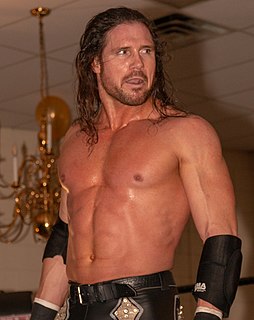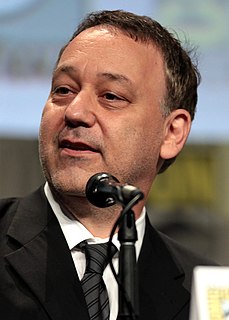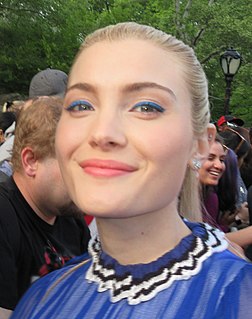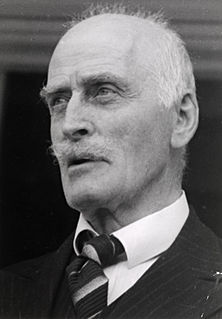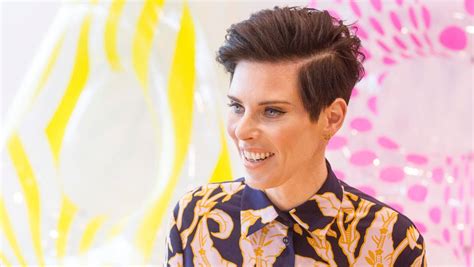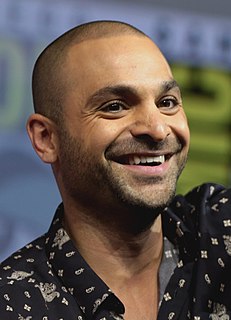A Quote by John Morrison
One thing I really like about 'Lucha' is it breaks traditions. It's established it's own identity and a world where the character can be darker, multilayered, even supernatural at times.
Related Quotes
I like something where I can really use my imagination and be an active participant in the construction of the monster and usually that's in the world of the supernatural or the world of the fantastic, so that's why those kinds of stories about demons and the supernatural appeal to me or maybe I'm really interested in that subject.
When I get into 'Lucha Underground,' now it feels like I'm part of a collaboration. And I'm talking about storylines; I'm talking about how we can put matches together, where we're going to go, what's going to happen to 'Lucha Underground' as a promotion; what's going to happen with my character; and I was back in suddenly.
I think the important thing to learn is that we can retain a sentimental loyalty to the cultural and literary traditions of, say, Judaism, Anglicanism or Islam, and even participate in religious rituals such as marriages and funerals, without buying into the supernatural beliefs that historically went along with those traditions. We can give up belief in God while not losing touch with a treasured heritage.
But now the world breaks in on us, the world is shocked, the world looks upon our idyll as madness. The world maintains that no rational man or woman would have chosen this way of life - therefore, it is madness. Alone I confront them and tell them that nothing could be saner or truer! What do people really know about life? We fall in line, follow the pattern established by our mentors. Everything is based on assumptions; even time, space, motion, matter are nothing but supposition. The world has no new knowledge to impart; it merely accepts what is there.
Once you are shooting a movie, even if it's your own script, you have to let it go at a certain point. That's true for every film. It breaks up into phases where the thing that you have in front of you is the thing you have to address, and you can't worry about what you imagined a scene was going to like and that it came out differently, because that's what you have to make work.
People want their reason for living to be a singular thing, like a career or a relationship, because this makes an individual feel secure in the physical world. We don't fare well in the realm of the invisible - so telling someone that their purpose is multilayered and includes the arduous journey of discovering who they really are is not always the answer they want to hear. But consider the complexity of the question: "What is my reason for living?" How can that question not include a journey into the depths of your own life?
I made a vow that I wouldn't be tempted by what could happen to me if I went to Europe. I thought, 'You could be absorbed in it - it's so seductive, you might lose your own search for identity.' Then, when I did finally go to Europe, I was able to resist it because I had established my own identity.
[about being a father] I don't really remember what it was like before. Whatever I had going on, it was bullshit. It wasn't important. It's kind of a nice thing about being a dad. My identity is really about them now, and what I can do for them, so it sort of takes the pressure off of your own life. What am I going to do, who am I? Who cares, you've got to get your kids to school. So I like it that way.
When I'm following what a character does in a book I don't have to think about my own life. Where I am. Why I'm here. My moms and my brother and my old man. I can just think about the character's life and try and figure out what's gonna happen. Plus when you're in a group home you pretty much can't go anywhere, right? But when you read books you almost feel like you're out there in the world. Like you're going on this adventure right with the main character. At least, that's the way I do it. It's actually not that bad. Even if it is mad nerdy.
The less you offer, the more readers are forced to bring the world to life with their own visual imaginings. I personally hate an illustration of a character on a jacket of a book. I never want to have someone show me what the character really looks like - or what some artist has decided the character really looks like - because it always looks wrong to me. I realize that I prefer to kind of meet the text halfway and offer a lot of visual collaborations from my own imaginative response to the sentences.
